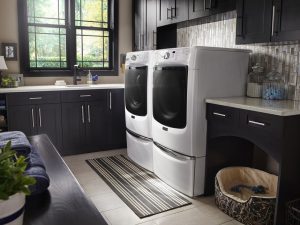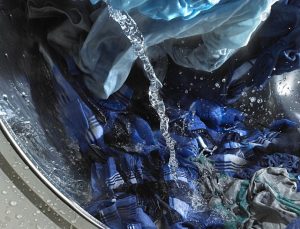All about ENERGY STAR® Appliances
We've all heard about ENERGY STAR®, and we know it's a government-sponsored program, but like so many government programs, the specifics often elude us. Let's see if we can't shed some light on this so you'll have another tool to make better appliance choices.
The ENERGY STAR® program was established by the EPA in 1992. It is a “voluntary public-private partnership designed to reduce energy use and related air pollution and greenhouse gas emissions.”* Curiously, the first products to carry the label were energy-efficient computers. Though this blog is about appliances, it's interesting to note that there are over 60 different categories of products that are covered under the program.
In appliances the following product categories are eligible for ENERGY STAR® certification.
- clothes washers
- dehumidifiers
- dishwashers
- freezers
- refrigerators
- room air cleaners and purifiers
- room air conditioners
- ventilating, fans
- water coolers
It's important to distinguish between the Energy Guide Label and the ENERGY STAR® Label.
The EnergyGuide label estimates the actual energy consumption that an appliance will use and provides some information about whether that use is above or below the average for that type of product. The dollar amount at the bottom of the EnergyGuide is the estimated yearly operating cost based on the national average cost of electricity. Example EnergyGuide label.
The ENERGY STAR label is the government’s symbol for energy efficiency. It helps consumers easily recognize highly efficient products, homes, and buildings that save energy and money, and help protect the environment. The ENERGY STAR label often appears at the bottom of the EnergyGuide label for qualified products.
Customers want to know can they really save much by purchasing ENERGY STAR qualiied appliances. The answer is a resounding YES! For example, let's look at the all important clothes washer category.
- An ENERGY STAR washer will use less than 14 gallons of water per load. That's compared to 27 gallons of water for a non-ENERGY STAR washer, nearly twice as much. Over the course of the washer's useful life the savings will amount to 43,000 gallons of water. In addition to the water savings, is the savings on the cost of heating the additional water, and disposing of it into our sewer systems.
- An ENERGY STAR washer will cost on average only $60 per year to operate.
- According to the DOE*, if every clothes washer purchased in the U.S. this year earned the ENERGY STAR label, we would save 790 million kWh of electricity, 32 billion gallons of water, and 2 trillion BTUs of natural gas every year, resulting in energy bill savings of about $350 million, every year.
Often customers ask why there are no ENERGY STAR ratings for ranges or clothes dryers. Essentially, the energy used by these appliances does not vary significantly from one model to another so that an ENERGY STAR rating would not make a difference. There is a move afoot to encourage improvements in clothes dryer energy use, and in a recent article Consumer Reports has noted that the folks at ENERGY STAR are working on developing a standard.
Choosing an ENERGY STAR appliance is good for the environment and can save you money. For more information on making wise appliance choices call or visit the experts at Universal Appliance and Kitchen Center.
Universal Appliance and Kitchen Center
12025 Ventura Blvd. Ste B-105
Studio City, CA 91604
PH 877 696-2987
facebook twitter
*ENERGY STAR ®. [July 31, 2012] . US Environmental Protection Agency and US Department of Energy. http://www.energystar.gov
- How to Design a Year-Round Outdoor Kitchen in Southern California
- What Are Flush-Mount Appliances: Flush-Mount Appliances Explained
- What Appliance Brands Hold Their Value the Longest
- Designing the Ultimate Outdoor Bar: Must-Have Appliances for Year-Round Fun
- Luxury Refrigerator Guide 2025: Built-In vs. Freestanding and What to Know Before You Buy
- How Smart Appliances Are Changing Luxury Kitchen Design in 2025
- The Ultimate Outdoor Grill Guide for 2025: Built-In vs. Freestanding
- Smart Bathroom Faucets & Fixtures in 2025: Blending Technology with Luxury Design
- Built-In Coffee Machines: Are They Worth It for Your Kitchen in 2025?
- How to Choose the Right Dishwasher for Your Home: Noise, Capacity, and Features Explained








